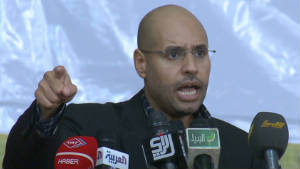By Terance Walsh
Impunity Watch Reporter, Europe
STRASBOURG, France — The United Kingdom began its six month tenure as chair of the Council of Europe’s (CoE) committee of ministers. As the chair, the UK will be responsible for supervising compliance with judgments of the European Court of Human Rights (ECHR), giving the UK the opportunity to assert its influence over human rights matters. UK media outlets are calling for the UK to take advantage of this opportunity.

Ukraine was the previous chair of the CoE.
The CoE is an organization of forty-seven member states and 800 million citizens and was founded in 1949. It is not to be confused with the European Council, European Union, court of justice of the European Union, or European Parliament. Its founding was inspired in part by Winston Churchill’s speech at the University of Zurich in which he called for a body that would foster truth and understanding to save Europe from descending into violence.
The UK said it will focus on strengthening the CoE as an organization, firming the rule of law, improving internet governance including freedom of expression, combating discrimination on the basis of sexual orientation and gender identification, and supporting local and regional democracies.
The UK foreign secretary said in a statement, “The United Kingdom is committed to upholding and promoting the rights and freedoms set out in the Convention – even if there has been at times considerable political controversy around certain judgments in the UK. As in many governments, and especially coalitions like ours, there is to be found a wide range of views – but this commitment is firmly agreed between the Conservative Party that I represent and our Liberal Democrat partners.”
The UK has already set forth its priorities for its term as chair, including:
“A set of efficiency measures, which will enable the court to focus quickly, efficiently and transparently on the most important cases that require its attention.
Strengthening the implementation of the Convention at national level, to ensure that national courts and authorities are able to assume their primary role in protecting human rights.
Measures to strengthen subsidiarity – new rules or procedures to help ensure that the court plays a subsidiary role where member states are fulfilling their obligations under the Convention.
Improving the procedures for nominating suitably qualified judges to the court, and ensuring that the court’s case law is clear and consistent.”
The CoE’s democratic structure will prevent the UK from implementing its reforms by force. The UK’s objectives have been initiated, however, at previous conferences. This will help the UK achieve its goals.
Among the other challenges the UK will face as chair is a backlog of cases in the human rights courts. There are currently 150,000 cases pending with an additional 20,000 added each year. This rush to the courts can be attributed to the success the court has had in resolving disputes. Citizens of newly formed Eastern European democracies have turned to the court to assert their rights, but they sometimes must wait years to have their case heard.
To deal with such a large volume of cases the court must be selective and accept only the most worthy cases. Some recommend that this goal would be served by improving the mechanisms of the court or consolidating cases that have similar facts.
The UK must improve the quality of judges in the court as well. Some propose filling the courts with the world’s best judges to demonstrate the priority the UK gives to human rights issues.
Indeed the UK has called for a more focused court, one that will not be used as a substitute for national court systems. Changes will be necessary to let the court “operate effectively.”
The increased volume of cases in the court may be a sign that the court has become a viable and effective venue in which claimants may assert their rights, but European Minister David Lidington said this goes beyond the scope of the original purpose of the court.
“Enforcing rights in situations where the drafters of the convention never intended them to be is the wrong direction of travel for the court and this situation is getting worse and it actually undermines both the court’s authority and its efficiency,” Mr. Liddington said.
The UK will chair the CoE until May 2012.
For more information please see:
APA — United Kingdom Takes Over Presidency of Council of Europe’s Committee Of Ministers — 7 November 2011
Guardian — UK Should Not Waste This Opportunity In Strasbourg — 7 November 2011
Isria — Foreign Secretary Announces UK Priorities For UK Chairmanship Of Council Of Europe — 7 November 2011
Telegraph — The Council of Europe: This is Britain’s Human Rights Opportunity — 7 November 2011
BBC — European Court of Human Rights Reform “Will Take Time” — 27 October 2011



